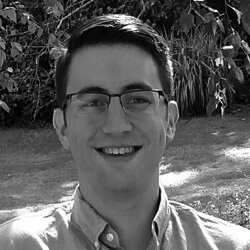Can we have meaningful change on guns?
|
The closest I’ve been to a mass shooting was when I was 15. It was 2004, and I was making an annual trip to northern Wisconsin with my father for the opening weekend of deer season, which is practically a holiday in my home state. That weekend, in what we later learned was a dispute over trespassing, a man shot eight hunters in the woods about 50 miles from where we were hunting, killing six of them.
Although neither I nor anyone I knew were ever in danger, all we knew at the time was there was a man in the woods murdering hunters. It was frightening, and we cut our hunting time short until we learned the suspect had been arrested.
It’s an understatement to say there’s no shortage of gun violence in America, but neither near daily shootings in poor neighborhoods or horrific acts of mass murder result in any meaningful change.
Comparing the national response to two of the most recent of these tragedies speaks volumes about the political climate around gun violence in America. On a Wednesday night last June, a white man who posted racist rants on the internet prayed with a group of black churchgoers in Charleston, S.C., before killing nine of them. Earlier this month, a Muslim couple of Pakistani descent who discussed jihad in private online messages killed 14 people at an office holiday party in San Bernadino, Calif.
After a national outrage following the Charleston shooting, South Carolina finally removed the Confederate battle flag from its state house, sparking anger from some white southerners who claimed their heritage was under attack. In contrast, the loudest response to the shooting in San Bernadino was a preposterous suggestion by GOP front-runner Donald Trump to temporarily ban all Muslims from entering the country — a proposal supported by 42 percent of adults who identify as Republicans.
The trend is clear — when an attacker is white, the response by many is often a fear not of more shootings, but of a backlash that will lead to restrictions on civil liberties. But when the perpetrator is Muslim, many of those same people enthusiastically support restrictions for other people.
The effects of these attacks on the victims are the same regardless of the race or creed of the perpetrators. I want my next president to be as assertive in preventing acts of terrorism by white Christians as he or she is in stopping jihadist terrorism. Preventing terrorism in the U.S. means stronger controls on guns. The shooter in Charleston should have been prevented from buying the gun he used, but a mistake in the FBI’s background check system kept that from happening, much like officials missed warning signs about the couple in San Bernadino.
In the aftermath of the Wisconsin northwoods shooting, we learned that the perpetrator emptied his 20-round magazine during the shooting. I remember wondering why anyone would be in the woods with that much ammunition — responsible deer hunters train to bring down the animal with a single shot to avoid unnecessary suffering.
Eleven years later, there are more high-capacity magazines out there than ever before, but I don’t feel any safer.
Nicholas Haynes, from Milwaukee, is a third-year Ph.D. student in physics at Duke.
Nicholas Haynes
Nicholas Haynes, from Milwaukee, is a third-year Ph.D. student in physics at Duke.
More Info

